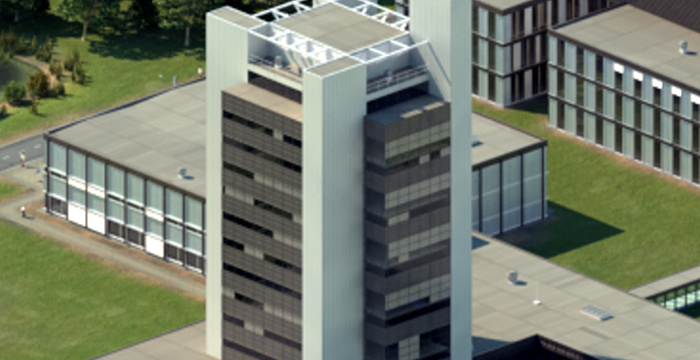Hello, I lead the HARMONI lab within the Chair of Neuromuscular Robotics. I am a sectorplan Assistant Professor on AI and Sensing. My research focuses include fusion of model-based and learning-based biomechanical models, learning human-exosuit interactions for improved assistance, and applications for occupational and space tasks.
My research background is in musculoskeletal modeling for real-time applications, sensor fusion for wearable biomechanics, and data-driven approaches for biomechanics. This helps me identify how we can explore novel methodologies for modelling the human-exosuit interactions and developing personalized models for extreme environments by fusing model-based and data-driven approaches.
Visit www.irfanrefai.com for my complete personal profile.
Organisations
I have built my research career around three themes within assistive biomechanics including wearable sensing, personalized modelling, and control for assistive devices.
During my postdoctoral research, I worked with two EU Horizon projects SOPHIA (https://project-sophia.eu/) and SWAG (SWAG (swag-project.eu)). The SOPHIA project developed real-time personalized musculoskeletal models (also accounting for fatigue) to understand the impact of and provide assistance to back support exosuits. Within the SWAG project, we will extend the musculoskeletal models to capture biological joint stiffness during gait.
During my Ph.D., I worked within a Dutch NWO project AMBITION with Dr. Bert-Jan van Beijnum, Prof. Peter Veltink, and Prof. Jaap Buurke to develop a reduced wearable IMU set to measure movement quality after stroke. The study advanced the state of the art in measuring movement post stroke, and also extended the capabilities of wearable technology for this aspect.
I was formally trained as a Biomedical Engineer during my Bachelor's and as an Electrical Engineer during my Master's.
Publications
2025
Research profiles
Bachelor courses
- Meten is Weten: Teaching Programming 1 course. Students learnt how to use python from scratch and use it in other aspects of the course.
- Imaging Technologies: Teaching Programming 2 course. Here, I introduce version control, signal and image processing for students. We also introduce using Large Language Models for efficient coding practicies.
Master courses
- Biomechatronics: Taught lectures on electromyography processing, neuromusculoskeletal modelling, robotic control interfaces, sensor fusion (Kalman Filtering), inertial navigation, and its applications in literature. Created assignments that applied these concepts, graded students, and conducted exams on this topic.
- Biomechanics of Human Movement: Introduced different methods to measure movement and translating data to personalized models.
Affiliated study programs
Courses academic year 2025/2026
Courses in the current academic year are added at the moment they are finalised in the Osiris system. Therefore it is possible that the list is not yet complete for the whole academic year.
Courses academic year 2024/2025
Current projects
Finished projects
SOPHIA
Socio-Physical Interaction Skills for Cooperative Human-Robot Systems in Agile Production
The H2020-ICT10 project SOPHIA – Socio-physical Interaction Skills for Cooperative Human-Robot Systems in Agile Production – aims to create a new generation of core robotic technologies for socially cooperative human-robot systems. The objectives are to achieve a reconfigurable and resource-efficient production and improve human comfort and trust in automation, in hybrid human-plus-robot manufacturing environments. SOPHIA core intelligence will enable timely, natural, and human-in-command interactions between humans and robots on both social (e.g., geometric reasoning and situation assessment; knowledge models for human-robot mixed teams; natural and multi-modal dialogue; and human-aware task planning) and physical (e.g., sharing physical loads) levels, representing the new concept of socio-physical interaction. Additionally, the design and development of novel under-actuated wearable exoskeletons and collaborative robots with high payload and advanced loco-manipulation capacities are central to the mechatronics developments of the SOPHIA project. SOPHIA has a clear focus on standardization of its advanced technologies at a European level. It includes a large network of Digital Innovation Hubs for agile manufacturing (Trinity, DIH2, Flanders Make, DIH Umbria) and healthcare (DIHero) to ensure that its core technologies are “compliant by design” to standards in the field of human-robot interaction and collaboration.
AMBITION
Many stroke patients stop using their affected limbs properly once they return home, leading to decline in motor performance. This project aims to improve long-term therapy outcomes by detecting and preventing such maladaptive behaviors. Researchers are developing a small, unobtrusive wearable system that monitors limb use, posture, and activity levels. It will also provide real-time feedback to encourage correct movement. The goal is to identify minimal sensing requirements for daily use—ideally integrated into a shoe or watch. The system’s effectiveness will be tested with healthy volunteers as well as stroke and Multiple Sclerosis patients.
Address

University of Twente
Horst Complex (building no. 20), room W117
De Horst 2
7522 LW Enschede
Netherlands
University of Twente
Horst Complex W117
P.O. Box 217
7500 AE Enschede
Netherlands